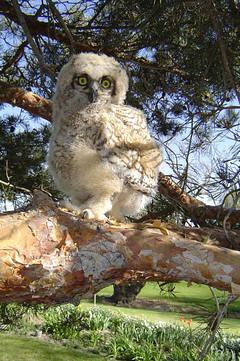TV: Internet: New media combos open spaces for new unregulated contents, genres, and communications disciplines
An important TV article by Neil Midgley is slanted by the headline-writer toward a mere battle of the giants, "BBC plans to compete online with iTunes" (Mar7,2k7), Telegraph (UK). But there are several other facets of the story that widen out into major shifts around technical changes and organizations, to changes in content-trends where new opportunities for freedom of expression are opened by the media-combos involved.
BBC Worldwide, the commercial arm of the BBC, has unveiled ambitious plans to compete with music and video download service iTunes.TV, by Audiovisiotor
John Smith, BBC Worldwide's chief executive, laid out a far-reaching commercial vision for the BBC's new iPlayer software.
The iPlayer has been developed by the BBC itself, and is expected to be approved by the BBC Trust later this spring. It will fulfil a public-service remit by giving UK licence-fee payers a seven-day "window" to catch up with BBC shows online, but Mr Smith said that BBC Worldwide also wanted to generate revenue with advertiser-funded content and pay-for downloads.
Controversially, Mr Smith invited other broadcasters to participate in the iPlayer, comparing it to an online version of Freeview or BSkyB's digital satellite platform.
The move is just the latest announcement from the BBC about its new media ambitions. Last week, it put some of its clips on video-sharing website YouTube, and it has announced that it is working with IBM on a video-based search facility for its library of children's programmes.
On-demand services from broadcasters like Channel 4 and Sky have as yet failed to capture the public imagination, but this online territory has already been staked out by a rag-bag of niche players.
"We're trying to break away from the established idea of what a television channel is," said Iain Dale, from www.18doughtystreet.com, a video website about Centre-right politics. "We have shows like World Wide Widdecombe, but we have also asked Peter Tatchell to create video for us."
Opinionated websites rely on the fact that the internet, unlike television, is completely unregulated. "If we were on Sky, we'd be bound by Ofcom's impartiality rules," said Mr Dale.
The freedom of the internet has also attracted other opinionated groups, particularly Christians. Premier Christian Media Trust has expanded from its Premier Radio base to offer evangelical TV on demand over the internet.
The buzz jargon differentiates between "lean forward" and "lean back" video content. Short clips, like those on YouTube, are the kind for which users "lean forward" to their computers. Traditional television, particularly entertainment, is intended for viewers to "lean back" on their sofas.
"There are different disciplines for programmes for the internet," said Nigel Dacre, of Ten Alps Digital, which operates www.public.tv, a website offering public sector, business and training videos. "You want to avoid complicated graphics and lengthy opening title sequences, and you include fewer separate sequences."
Newspapers such as The Daily Telegraph are also using short videos to drive traffic to their websites.
Clive James, the veteran broadcaster, started making a chat show in his living room and showing it on www.clivejames.com. "But on the internet, you pay for every signal you send," said James. "If you have too many viewers, you can die of success very quickly."
James has therefore taken to forging "alliances". His chat show, Clive James Talking, is still made in his living room, but has now made the reverse transition and has its first broadcast on digital TV channel Sky Arts.

 >br>
>br>









No comments:
Post a Comment